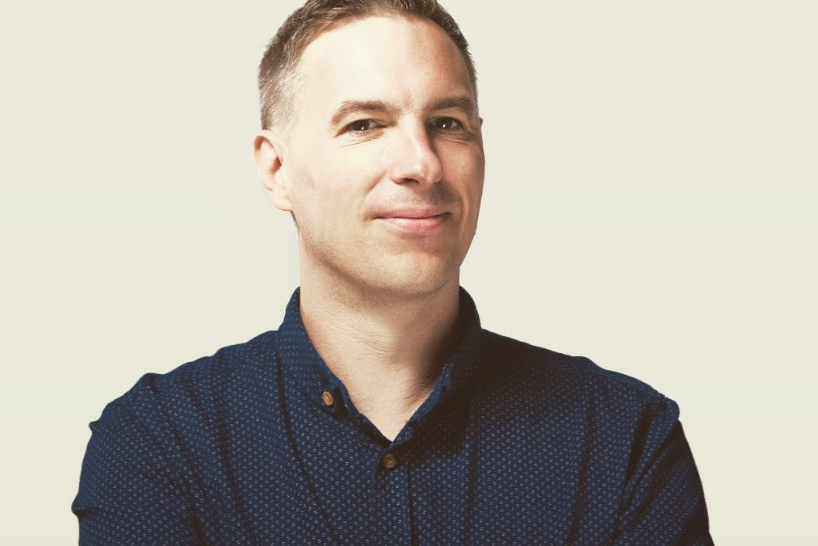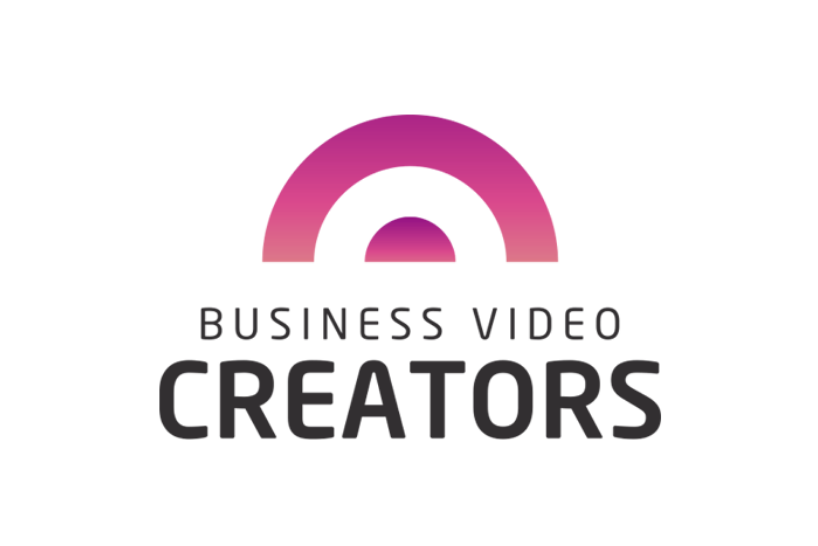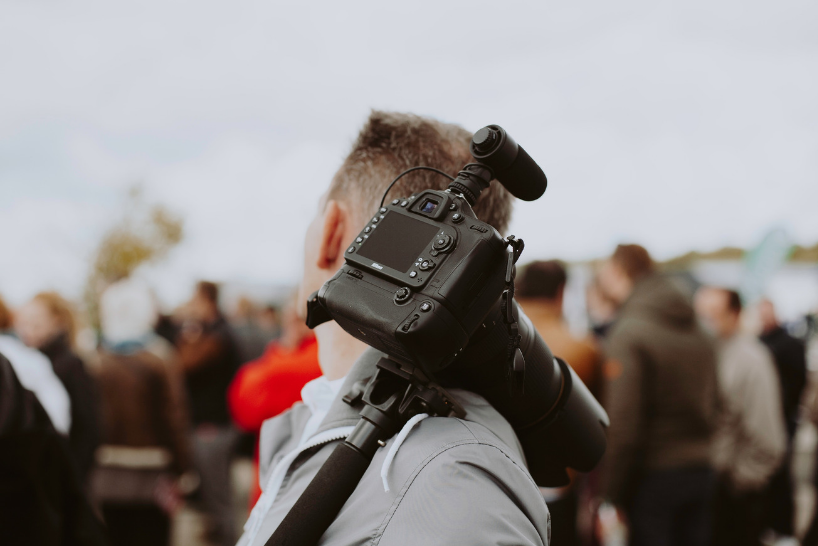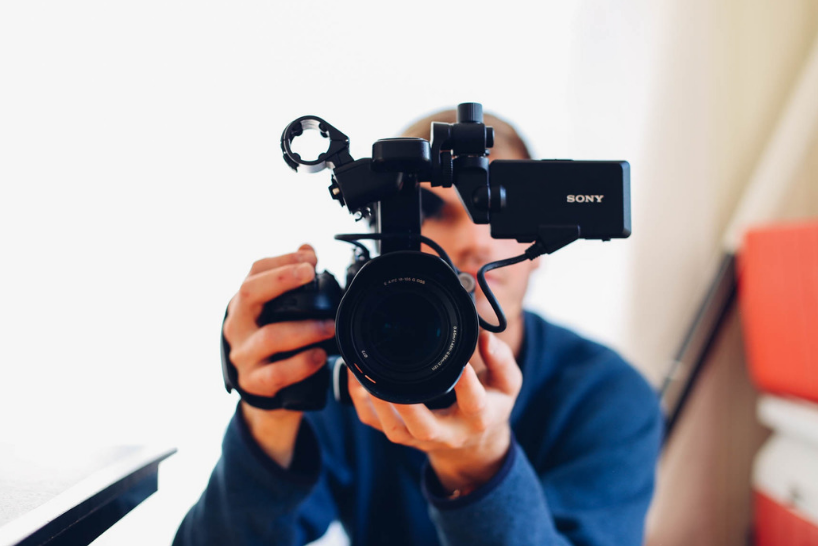If you follow Rubber Cheese on social media, you’ll know all about the #15yearsofRubberCheese charity cycle we completed.
Walking in the footsteps of Sir Bradley Wiggins, Victoria Pendleton and Mark Cavendish, we rode a whopping 15 hours between us (thankfully, on stationary bikes from the comfort of our air-conditioned office).
We live-streamed the event on Facebook and, throughout the day, our Managing Director, Kelly Molson, picked the brains of three business founders while she pedalled.
One of those founders was Tony Slater of Business Video Creators. His passion lies in creating extraordinary video content for companies. He also teaches owners how to better utilise this powerful marketing tool.
Keep reading for Tony’s interview highlights – alternatively, watch the full video on our YouTube channel.
The Interview
Thanks for joining us, Tony. Let’s begin with your background and career history. How did you get into the video industry?
It’s been a long road!
I went to university and studied film and media production. This was in the pre-digital era so I was using S-VHS tapes! It’s quite funny to remember actually.
In the edit suite, you had two VHS players. There was one on the left where all the source material and rushes were kept and one on the right for final output. If you made a mistake halfway through, you had to go back and re-do the whole thing. There wasn’t any Ctrl+Alt+Del.
So, you really learnt your craft!
Absolutely. Technology has come a long way since then.
Over time, my editing skills developed and I found a love for all things video. Despite this, I didn’t break into the industry straight after leaving university. It was a very small and London-centric field back then – it was all about who you knew and the competition was fierce.
What did I do?! I bummed around a bit, went to the pub, played in a band. Typical student stuff.

I’ve heard about your music background! You DJ as well, don’t you?
Yeah, I wanted to be a rock star for a few years. That nearly worked but not quite, so I got a job as a video forensic consultant.
That sounds exciting – what do they do?
That’s exactly what I wondered at first!
Basically, I dealt with video evidence for courts. I’d circle people and blur faces. Some of my work actually ended up on Crime Watch. Sometimes, I’d go into court as an expert witness. I did that for six or seven years. The whole experience taught me to be a quick editor because deadlines had to be met. The only downside? You couldn’t be creative!
Eventually, I was made redundant. It was a blessing in disguise. Up until then, all my creative work was on the side. I just thought “right, I am going to follow my passion now”.
You hear that quite a lot. Redundancy brings about the change you need.
It’s true. You can get complacent if you stay in one place for too long. Redundancy was positive for me.
After that, I was eager to create but I didn’t have any idea about how to run a business. I don’t think many people do when they start out.
Absolutely. You want to do something you love and you think that’s what a business is. It couldn’t be further from the truth. There’s so much more to it.
Exactly. You begin to ask yourself “who’s going to pay me to do this”. I started small with a bit of inexpensive kit, mainly shooting weddings. A lot of people actually start in this area because it’s an easy in. My first few shoots were free because I needed to build a portfolio and I charged after that. But I didn’t want to work at weddings forever. I needed to expand.
This is where networking came in – it got me in front of business founders so I could explain how video could help them. My business evolved over the years – it’s no longer just me going out with a camera. I have a team with me. Plus, I get involved in the training side.

It’s interesting how businesses evolve like that. You try a few things, figure out what you like and what direction to focus on.
Totally. It took me quite a few years to work out what I really wanted for my business. I had to discover what I enjoyed doing.
For me, freelancing wasn’t sustainable. It’s quite lonely. I remember working weddings and shooting for 12 or 13 hours straight. It was somebody else’s big day and it was tough! It just wasn’t for me.
It sounds like you’ve come a long way since then. Let’s talk a bit about your business now. You’re the founder of Business Video Creators – what do you do and who do you help?
We help a variety of businesses who want to better implement video.
They might want a clip for their homepage or some visual marketing material but not know how to go about it. That’s where I step in. My job is to develop their ideas – I have a consultative role.
I know some people like to niche but I take a more open approach. Plus, the video solutions we offer are suitable for all sorts of industries.
As long as people are open to new ideas, we can help. Clients are usually creative and forward-thinking in their approach to marketing. Video, at its core, is innovative.
It sounds exciting! What does a typical day look like for you?
Typically, I’ll be out on shoots and working with clients in a director/producer role. On the days I’m not doing that, I’m editing. I like to be involved in the editing side of things. I struggle to let that go because of my background. I just love the process of taking clips and making something out of it. The output is so satisfying
Marketing is important and connecting with like-minded people. LinkedIn is a big one for me – it’s great for building valuable relationships. I spend a lot of time promoting my business on there and sharing content I’ve created for myself.
Although there’s a team of freelancers I work closely with, I still spend a lot of time by myself away from set. That’s where discipline and motivation come in. I have to be focused.

Do you have any tips for maintaining that focus? It can be so difficult!
Exercise helps. I love cycling, it gets my head right. It has a calming effect and prepares me for the day ahead.
As business owners, we tend to forget about our well-being, especially in the early days.
Here’s a big question – how are you now in front of a camera?
I love it but it took me a long time to get comfortable. Anybody who wants to use video has fears. They’re frightened of how they’ll come across. You know the feeling – when you watch yourself back on camera and just cringe. But the more you do it, the easier it gets.
My confidence grew every time I filmed content to promote my own business. As owners, we know our businesses best. We have to get out there and share our passion and knowledge, no matter how scary it is at first.
Video is a powerful way to connect with your audience. It can be used to educate and retain clients. If you’re not implementing it, you’re missing out on a huge opportunity.
Tell us a bit about your workshops?
The smartphone video workshops came about because I wanted to help business owners promote themselves through video.
They are designed to be accessible. We teach people video strategy and technique. We also dip into a bit of editing. Basically, the sessions explain the whole process of shooting basic videos. I’m not trying to teach people to be the next Steven Spielberg!
The thing is, it’s easy for me to shoot on my phone. But it’s actually pretty difficult for a number of people. Not everyone knows how to do it.
Let’s go back to networking. You mentioned the importance of LinkedIn for growing your business. Do you have a video strategy for the platform?
No matter the platform, you need a strategy. LinkedIn used to be confusing and stuffy – now it looks a bit like Facebook. It’s more video-friendly.
The content I post on LinkedIn is purely educational. I post daily content and one video a week. Asking your audience questions within the video encourages people to leave comments and participate in the conversation. I do a lot of that.
The highest engagement I’ve ever had on a LinkedIn video was for a bloopers reel. It has something like over 2000 views and 40 comments. Its success is down to the fact people want to see authenticity from brands.

You spoke earlier about focus. When you start out, it’s easy to get disheartened. Where do you turn to for support? Do you have a business coach, mentor or inner circle of people to lean on?
I think it’s really important to have that.
Last year, I worked with a fantastic mentor who’s in the same industry as me. He realised filmmakers, in general, are very creative but a bit rubbish at running a business.
He built a community based on this premise. I learnt a lot about networking, finding clients and setting prices. Also, I made some great friends through his network and that’s my inner circle now.
Despite working in the same profession, they’re not competitors, they’re my peers. You need people to bounce ideas off.
It’s like finding your tribe.
Exactly. You need to invest in yourself. I’m actually working with a new business coach at the moment.
You never get to the point in business, even if you’re massively successful, where you say “I don’t need a mentor or coach”. There’s always something to improve.
I prefer this one-to-one method now. I don’t do as much networking as I used to.
Constant networking is a new business thing. When you start, you go to anything and everything. Eventually, you work out the best use of your time. You can’t be networking all day long.
You can’t turn up to everything, can you? I go to one networking group a week and that’s the best use of my time.
I’ll be honest, I stayed away from networking for a while. I was in a group for a year that didn’t work out for me. Then I found a great group in St. Albans which better suited my needs.
It’s about finding the right bunch of people and looking past the branding of organisations. Can you sit in a room with these people every week? Are you happy to give them business? You must feel a connection in order to share ideas.
These days, my networking is more online. I have a lot of productive conversations with people through LinkedIn. It works really well for me.

It’s time for audience questions. What’s more important, good audio or good video?
Both! Audio is often overlooked. If you have a really well-shot video and the audio is rubbish people will tune off.
Do you think you need a 4k camera?
Absolutely not. 4k will take years to become an industry standard.
If you have the machine to edit it and the capability, then go ahead. If you don’t, or if you’re new to video, don’t worry about it.
Do you have any tips or techniques for doing client interviews?
Your job as a video professional is to make interviews look as seamless as possible.
You want the client to be relaxed – it’s common for people to get edgy once they’re on camera. Talk to them over coffee and help them settle in. It’s a bit cheeky but, sometimes, I’ll press play at this point! It’s a great way to capture people talking. The pressure’s off them to perform.
Another tip is when you ask a question on camera, ask that person to repeat the question within the answer. It’s a well-known tactic called comprehension.
They’re some great tips to remember. Well, it appears we’re out of time. Thank you so much for joining us, Tony.
My pleasure!
How you can help
The fundraiser isn’t over yet! You can still help us reach our goal.
Head over to our JustGiving page to donate OR text ‘BRIE78 £5’ or ‘BRIE78 £10’ to 70070. Every contribution is greatly appreciated.
Why are we doing this?
The Tamba Bereavement Support Group (BSG) exists to support all parents and carers of multiples who have experienced loss whether it was during pregnancy, at birth or at any point afterwards. It is a charity extremely close to the heart of our MD Kelly and her partner Lee after losing their twin girls Lily May and Ava Allison in 2017. We’re raising money to help them continue their amazing work.

Related articles
Interviews
The world of wedding photography with Lee Allison
Interviews
Learning and development with Blake Henegan
Interviews
Interview with Kirsten White, Founder of London Grace